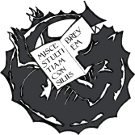Candidacy Statement: Emily Morgan
This statement has two parts. The first is general thoughts at HRSFANS and the HRSFANS board. Independent of the elections, I hope you all will find it interesting. The second is about me and is mostly directed to people who don’t know me. (If you know me already, it probably doesn’t contain anything you don’t already know.)
Part One:
==Goals for HRSFANS==
What most excites me about HRSFANS is the ability to maintain a HRSFA-like community after graduation. The reunion opened my eyes to just how many HRSFA alums there are out there, and it seems downright silly to me that there are so many people who I’m virtually guaranteed to like, who are already tangentially connected to me, but who for the most part I’m not actually meeting. I doubt anyone reading this needs to be convinced that a HRSFANS community is a good thing, so instead, I’ll focus on listing some ways we can go about nurturing it. This is not an exhaustive list. It’s not also not exclusively–or even primarily–my own ideas. It’s merely a start at collecting what I see as some of the most promising ways we can support this community:
-Create regional mailing lists for organizing events in areas with sufficient HRSFANS populations. In addition to Boston, we seem to have substantial contingents in New York, DC, the Bay Area, and many other cities.
-Organize HRSFANS SIGs that people can participate in remotely (such as the already ongoing online Magic drafts).
-Organize large-scale alum gatherings in places other than Boston (such as Tom Lotze’s famed 4th of July party).
-Create a website to assist with alumni networking. (In additional to regional networking, this could help with career networking, for instance.)
Another important aspect of this community to integrate the growing alum community with the undergraduate community. Being not too long gone from the undergraduate world, I can confidently say that undergrads are always excited to meet the alums they hear stories about and to hear more about the HRSFA of yore. Simultaneously, I know that we alums are interested in hearing about the latest HRSFA news and emerging traditions. Again, some specific suggestions:
-Reunions! (More than once every 20 years, even!)
-I think a newsletter that encompasses both undergraduate and alum news would be a great way to keep the two groups in touch. This could include not only information about HRSFA and HRSFANS as wholes but also news from individual members, such as HRSFen/ANS who are publishing books and games, running for political office, etc.
==The Role of the Board==
As you can see, I have some specific ideas for things HRSFANS could do. Specific ideas are useful, but I’m not wedded to this particular batch. I think the first job of the new board will be to collect a much more comprehensive list of ideas, both broad and specific. The next step, obviously, is to start implementing those ideas. However, I think the ideal is not for the board to take it upon itself to implement those ideas, but rather to create infrastructure and a support network that will allow everyone (board members and non-members alike) to implement their ideas as easily as possible. To take HRSFA as a model, the bulk of HRSFA activities are run by SIG leaders (who may or may not be officers as well), and the officer board’s role is to provide the structure in which those SIGs can best function. I think HRSFANS will benefit from a similar model, in which the board provides the support necessary for “SIG leaders” (or regional coordinators, or whatever forms they take) to implement their own ideas. This will undoubtedly involve a good deal of mundane logistical work: keeping up to date contact information for members, providing technical support for mailing lists and websites, and so on. More interestingly, it will also involve finding those SIG leaders (a serious task in itself!) and working with them to determine what sort of support is necessary for their various endeavors.
Strictly speaking, the board isn’t necessary. Most of what I’m proposing could happen without a board or an official organization. Some of it already does. But much of it doesn’t. The board’s ultimate job is to turn more of these ideas into realities.
==The Role of the Secretary==
The secretary should help with logistics and communication. Whoo, paperwork. A more interesting task is keeping lines of communication open between HRSFANS, its “SIG leaders”, and HRSFA. Of course, this is a job for the board as a whole, but the secretary in particular should be in touch with everyone, aware of who is doing what, and ensuring that people get the support they need in their various endeavors. In the collaboration-with-HRSFA department, I would particularly like to see the secretary and the HRSFA alumni liason working together on a newsletter as described above.
— Part Two:
==Me==
For those who have no idea who I am:
I’m a freshly minted alumnus, having just graduated in ’07. I’m now doing a Masters degree in Cognitive Science at the University of Amsterdam. (Yep, in the Netherlands!) My strongest HRSFA-related interests are puzzles and games, followed by reading fantasy and science fiction.
==My Qualifications==
1) I love HRSFA(NS).
2) I love organizing things.
1+2 = 3) I love organizing things for HRSFA(NS).
As an undergrad, I was Vericon Chair for two years (’06 and ’07). I was also very involved with coordination and logistics for the HRSFA Puzzle Hunt. I’ve been Acting Secretary of HRSFANS since our incorporation in the fall. I make lots of to do lists.
==The End==

